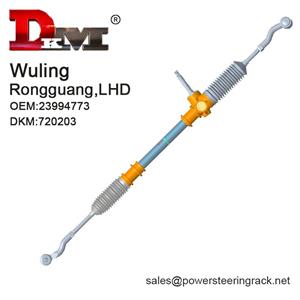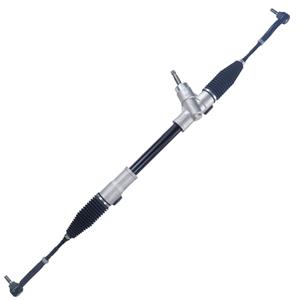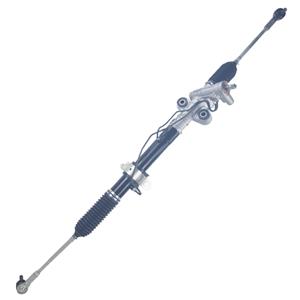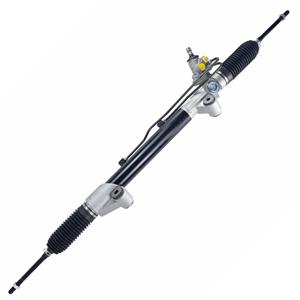What causes Mercedes-Benz power steering failure?
As an important part of modern cars, the power steering system greatly improves the driver's operating comfort and vehicle handling. However, despite the continuous development of technology, the power steering system may still fail under various conditions. For a brand like Mercedes-Benz, which is known for its luxury and exquisite engineering, the problem of power steering system failure is still a common problem for car owners. So, what causes Mercedes-Benz power steering system failure?
This article will explore this issue in detail from multiple angles to help car owners understand how the power steering system works, common failures, and the root causes that may cause these problems.
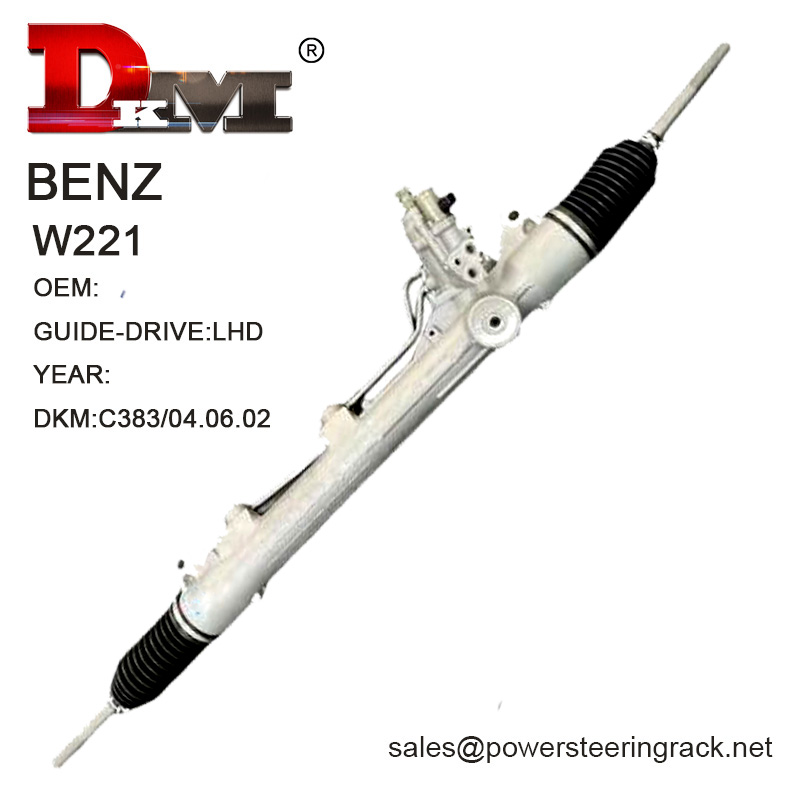
How does the power steering system work?
Before we delve into the failure of Mercedes-Benz power steering system, it is important to understand how it works. The power steering system provides auxiliary force to make it easier for the driver to turn the steering wheel. This auxiliary force is usually provided in two main forms:
1. Hydraulic Power Steering (HPS): This system relies on a hydraulic pump to generate hydraulic pressure, which drives the engine through a belt. The hydraulic fluid enters the steering gear through a pipe to help the driver turn the wheel.
2. Electric Power Steering (EPS): Compared with hydraulic systems, EPS systems rely on electric motors and electronic control units (ECUs) to provide power, completely free from the constraints of hydraulic systems.
Mercedes-Benz's power steering system may use different technologies on different models. Many high-end models have gradually switched from hydraulic systems to electric systems in recent years.
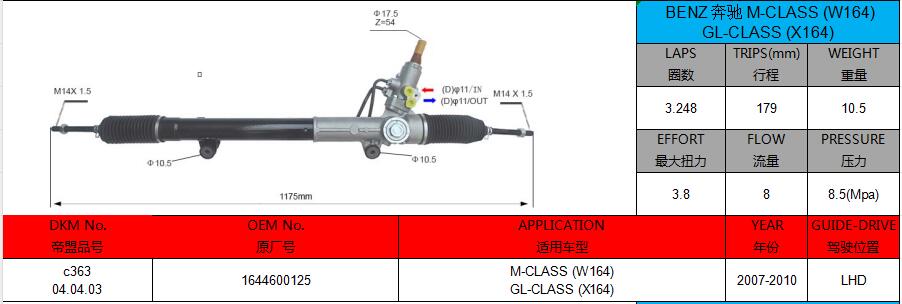
What are the types of power steering system failures?
Power steering system failures usually affect the vehicle's handling and driving safety. Here are some common types of power steering failures:
1. Steering failure: The driver will find that the steering wheel becomes very heavy and very difficult to turn, especially at low speeds.
2. Reduced or intermittent steering power failure: The driver may feel that the steering wheel power is unstable during driving, sometimes good and sometimes bad, especially when the power suddenly weakens when turning.
3. Abnormal noise: When the fault occurs, you may hear a harsh noise from the steering system, especially when turning the steering wheel or the vehicle is turning.
4. Steering system hydraulic oil leakage: Hydraulic system leakage is one of the most common faults of hydraulic power steering systems, which may cause power failure and damage other components.
5. Electrical system failure: In the electric power steering system, a failure of the motor or sensor may cause the steering power to fail or perform poorly.
Understanding these common types of failures can help car owners identify the problem more quickly and take timely measures to repair it.
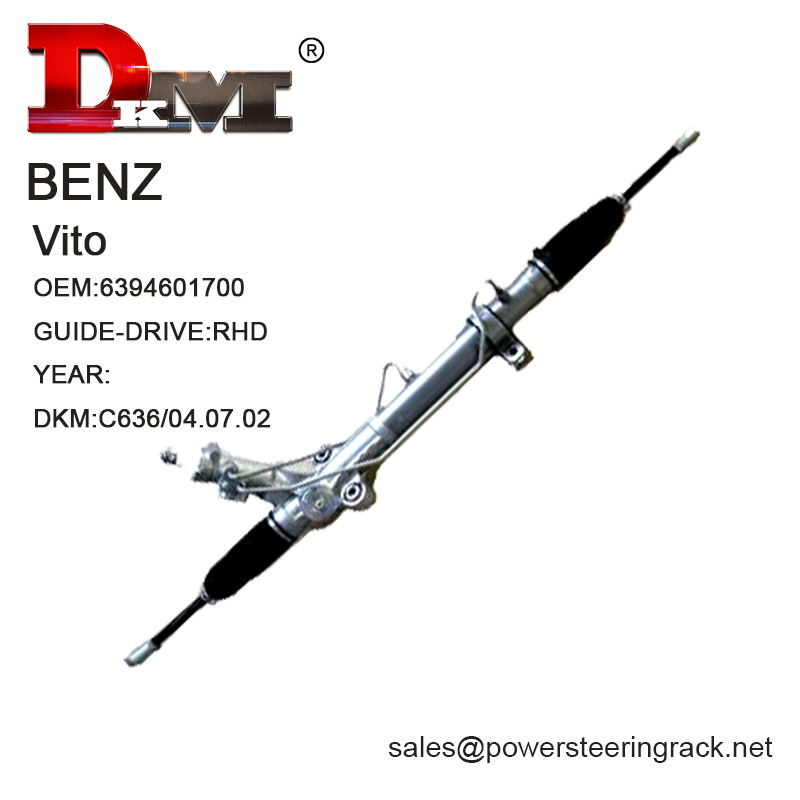
What causes Mercedes-Benz power steering to fail?
The main reasons for Mercedes-Benz power steering system failure:
1. Aging or damage to hydraulic system components
2. Insufficient or contaminated hydraulic oil
3. Electrical failure in the electric steering system
4. Wear of belts or pulleys
5. Mechanical problems in the steering system
6. Inadequate maintenance or improper use
Mercedes-Benz power steering system failures may be caused by a variety of factors, and these 6 points are some of the main reasons:
Aging or damage to hydraulic system components
The hydraulic power steering system relies on the normal operation of multiple components, including hydraulic pumps, hydraulic oil pipes, hydraulic fluids and valves. Aging, wear or damage to any component will cause the system to fail or the power to be weakened.
● Hydraulic pump wear: The hydraulic pump may wear after long-term use, resulting in reduced efficiency of the pump and failure to provide sufficient pressure to support the steering power.
● Hydraulic oil pipe leakage: Aging or damage of the oil pipe will cause hydraulic oil leakage, resulting in insufficient hydraulic pressure in the system, which will in turn affect the steering power.
● Deterioration of hydraulic oil quality: Hydraulic oil will fail due to contamination or oxidation during long-term use, resulting in reduced efficiency of the hydraulic system.
Insufficient or contaminated hydraulic oil
The hydraulic system needs hydraulic oil to generate the necessary pressure. If the hydraulic oil is insufficient or contaminated, it will directly affect the normal operation of the steering system. Common causes of insufficient hydraulic oil include:
● Oil leakage: Hydraulic oil may leak due to aging of pipes, joints or seals.
● Hydraulic oil contamination: External impurities or metal particles generated by internal wear of the system may enter the hydraulic oil, causing abnormal operation of the hydraulic system or even damage to key components.
Electrical failure in the electric steering system
For Mercedes-Benz models using the electric power steering system (EPS), electrical failure is one of the main sources of failure. The EPS system relies on motors, sensors and control modules for real-time adjustment. Problems in any link will cause the power steering system to fail.
● Motor failure: The motor is the core of the EPS system, and motor failure may cause a complete loss of power.
● Sensor failure: Failure of key components such as steering angle sensor and speed sensor may cause the system to be unable to correctly adjust the power assist.
● Electronic control unit failure: Failure of the control unit may cause system errors and even cause the entire steering system to fail to work properly.
Belt or pulley wear
For hydraulic power steering systems, the belt-driven hydraulic pump is a vital component. If the belt is aged or worn, the power steering system may lose power, resulting in insufficient steering assist.
● Belt loosening: Over time, the belt may loosen due to material aging, which will affect the efficiency of the hydraulic pump.
● Pulley wear: The pulley system of the hydraulic pump may also wear due to long-term use, which will affect power transmission.
Mechanical problems in the steering system
Mechanical components such as steering racks and gears may also wear and age during long-term use, which will cause problems such as insensitive operation of the steering system and increased clearance.
● Rack wear: If the rack and gear are excessively worn, it may cause insensitive steering feedback or even "empty position" phenomenon.
● Loose steering column: The steering column is an important component connecting the steering wheel and the steering mechanism. If it is loose or damaged, it will also affect the normal operation of the steering system.
Inadequate maintenance or improper use
The failure of the power steering system is closely related to daily maintenance and usage habits. If the owner fails to regularly check and maintain the power steering system, long-term accumulated problems may cause more serious failures in the system.
● Neglecting regular maintenance: The hydraulic power steering system requires regular checks on the hydraulic oil level and quality. Ignoring these checks may result in insufficient oil or deterioration in quality.
● Improper driving habits: Improper operations such as frequent steering when stationary and sharp turns will increase the load on the power steering system and cause premature wear of components.
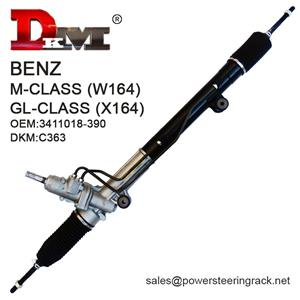
How to prevent power steering system failures?
For Mercedes-Benz models equipped with hydraulic power steering systems, owners should regularly check the level and quality of the hydraulic oil, replace aging or contaminated hydraulic oil in a timely manner, and check for oil leaks. For models equipped with EPS systems, owners should pay attention to the maintenance of the electronic system, including checking the battery voltage, motor status, and whether the sensor is working properly.
In addition, owners should regularly check the tension of the belt and the wear of the pulley, and replace them if necessary to ensure that the hydraulic power steering system can work properly. Avoid frequently turning the steering wheel when stationary, avoid sharp turns and intense driving, etc., which can effectively reduce the load on the power steering system and extend its service life.
Therefore, in summary: Mercedes-Benz power steering system failures may be caused by a variety of factors, including hydraulic system problems, electrical system failures, mechanical wear and insufficient maintenance. In order to ensure the normal operation of the power steering system, car owners should maintain good driving habits and regularly check and maintain the steering system.
As an indispensable part of modern cars, the normal operation of the power steering system is crucial to driving safety. For the luxury brand Mercedes-Benz, timely detection and resolution of power steering system problems is the key to ensuring excellent vehicle performance and driving pleasure.

